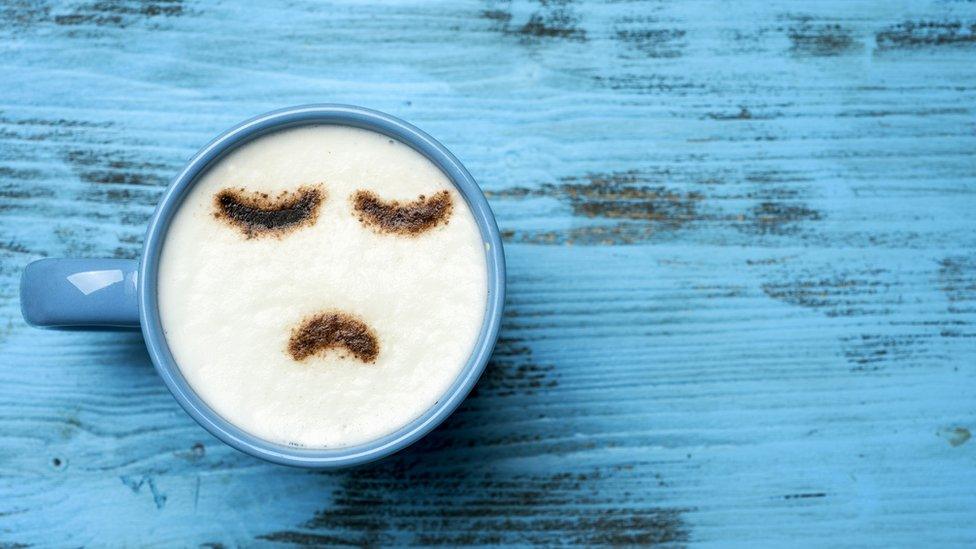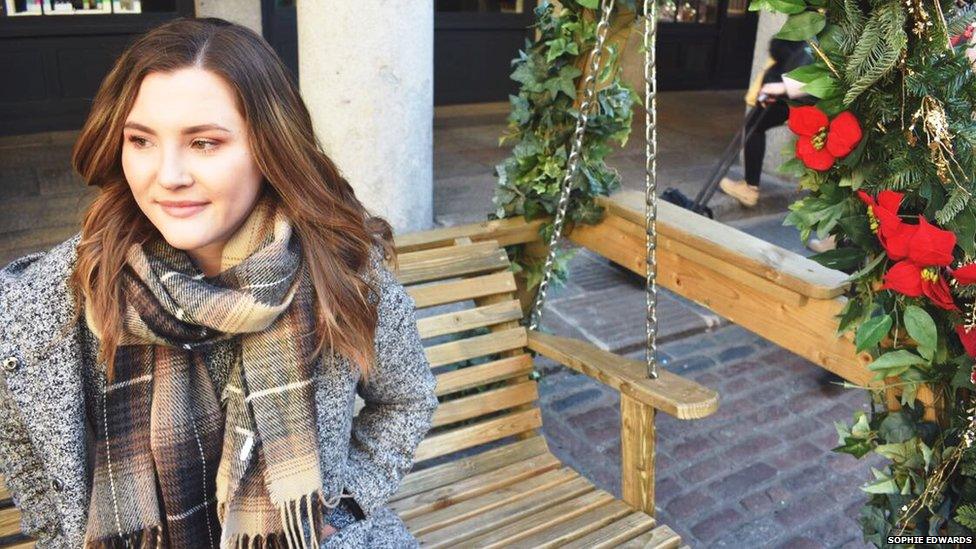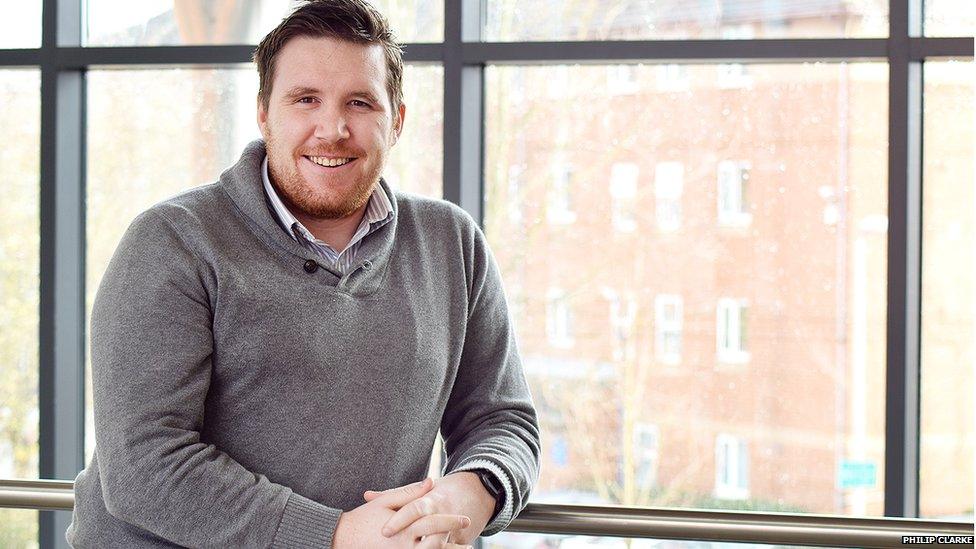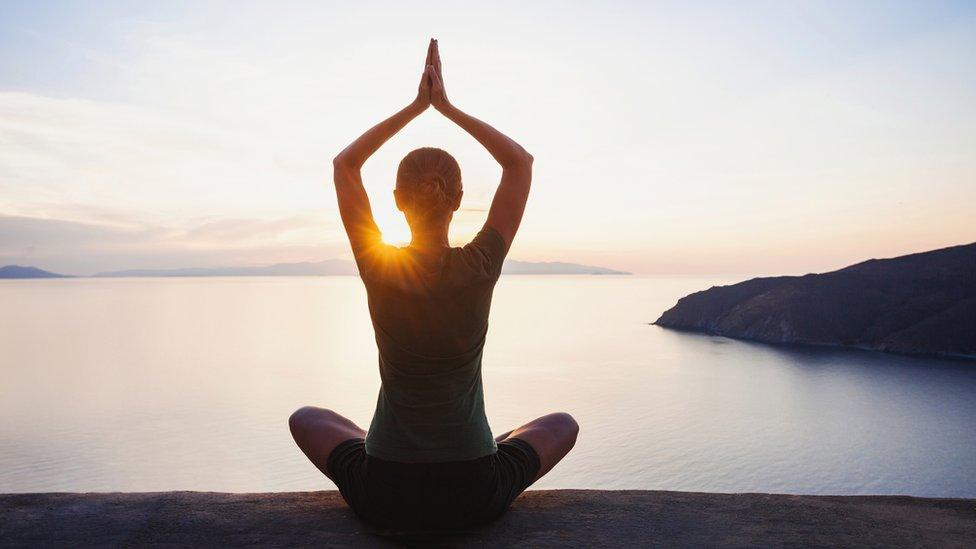Blue Monday: Why it's a 'load of rubbish'
- Published

Christmas is over, it's cold and dark outside and that summer holiday seems like a world away.
Blue Monday - also known as the most depressing day of the year - has been trending on Twitter all day.
Coined by psychologist Cliff Arnall in 2004, it falls on the third Monday in January every year.
He came up with it after a holiday company asked him for a "scientific formula" for the January blues.
Unsurprisingly, there was nothing scientific about it.

Sophie thinks Blue Monday can be damaging to those struggling with their mental health
Sophie Edwards, a 20-year-old student from Kent, has suffered with panic attacks and anxiety since the age of seven.
She told Newsbeat she thinks labelling one day a year can be damaging for people dealing with their mental health issues.
"I think Blue Monday is a load of rubbish to be honest - it's just a label on an ordinary day but it puts a lot of pressure on people who already have a mental illness to overcome it," she said.
"It adds a lot of anxiety to the day and people get worried about the build up of it.
"I like to plan ahead - so if I look at a day and see that it's labelled the most depressing day of the year I'll get anxious about that and think that I need to be happy on that day."

Sophie uses her blog Petals of Perfection to talk about her experience with her mental health
But she also thinks the day can open up a conversation about mental health.
"I've seen a lot of people online saying things like 'Today is just another day, but if you do need someone to talk to I'm here'.
"It's raising awareness that there is a massive support network both on and offline."

Dr Phiip Clarke says Blue Monday isn't scientifically proven
Dr Philip Clarke, a lecturer in psychology at the University of Derby agrees.
"I started speaking out against Blue Monday when I saw companies were trying to use it as an excuse to sell things," he said.
"I can understand why people would feel down in January, you've just come off Christmas - spending a lot of time with family, overindulging and it's a lot darker outside.
"The key thing to remember is that Blue Monday isn't scientifically proven - there's not even proof January sees a rise in mental health referrals although it may seem that way," he adds.
"But Blue Monday is getting people having those difficult conversations about depression and anxiety and what you can actually do to help with that.
"I think that's a really strong benefit that comes with it," he said.
Top tips

Although Dr Philip thinks it's important not to confuse feeling low with depression, he has tips everyone can use for better mental health.
Exercise
"Exercise is a fantastic thing people can be doing as it releases happy endorphins and chemicals. It doesn't have to be exercise in the gym because that can be off-putting for some people.
"It just about increasing your physical activity."
Assess your New Year's resolutions
"A lot of people fail their New Year's resolutions within two or three weeks.
"But if you have failed, look at why and use that as a learning experience.
"This gives people hope that they can still work towards a goal for the year and not beat themselves up about it."
Volunteering
"One reason people love Christmas isn't necessarily the receiving, but the pleasure they get from helping people.
"This can be a good way to get a happy boost with no financial implications."
Find us on Instagram at BBCNewsbeat, external and follow us on Snapchat, search for bbc_newsbeat, external